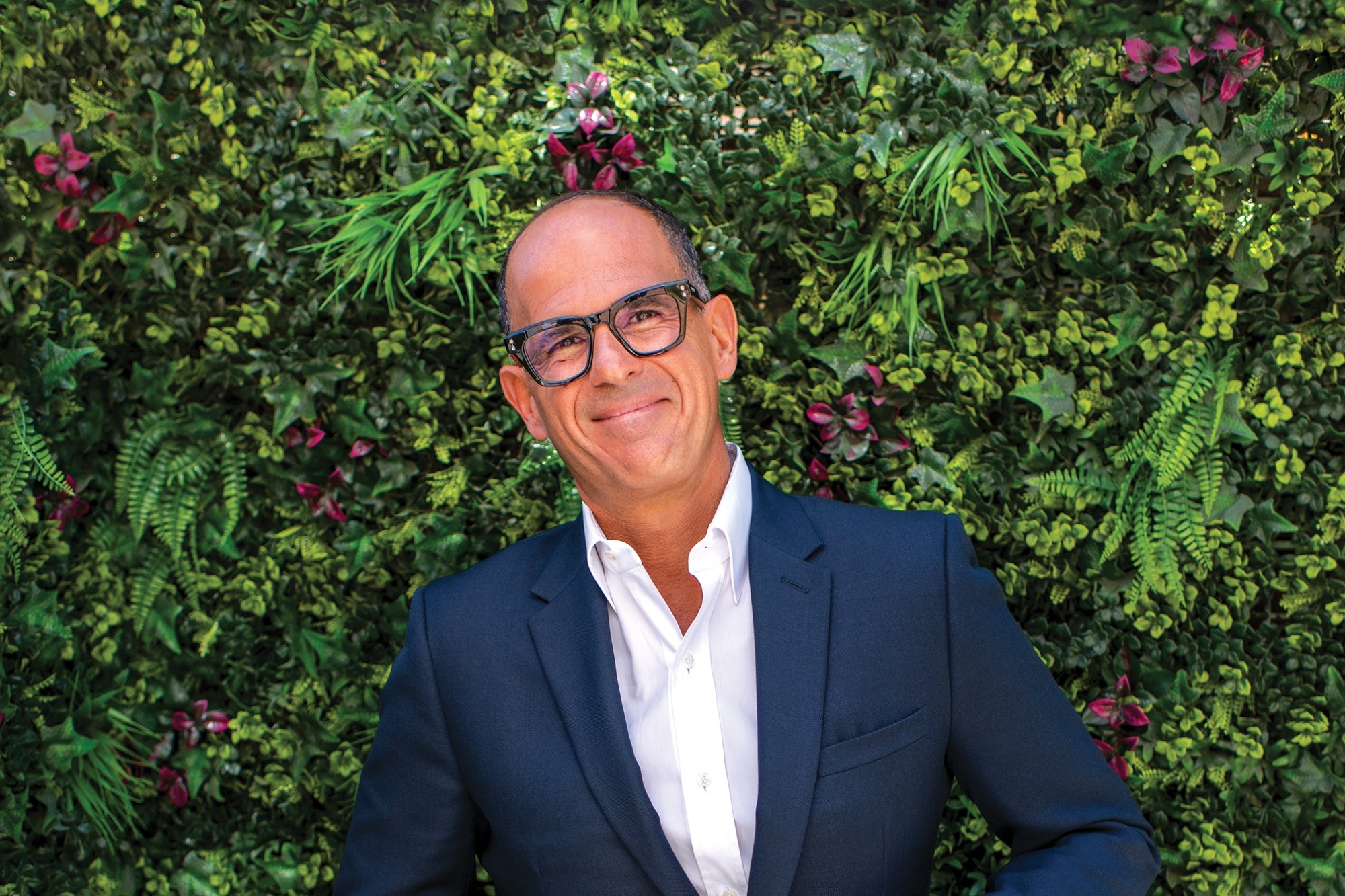Marcus Lemonis came home feeling crummy.
After eight years of hosting his hit TV show The Profit, in which he helped turn around struggling businesses, he’d just finished taping a show for HGTV called The Renovator — where he helped families with their home renovations. “I didn’t really like that,” Lemonis told his wife.
Then he asked her: “Why didn’t I like that?”
“Because people didn’t need you for that,” she replied. “They could renovate their own home, or they could get somebody else to do it. The world wants you to help them make more money, or fix their business, or crack the code to something inside them. And absent that, the world doesn’t really need you.”
Related: I’ve Managed 260 Employees — Here’s How to Tell If Your Leadership Style Is Actually Working
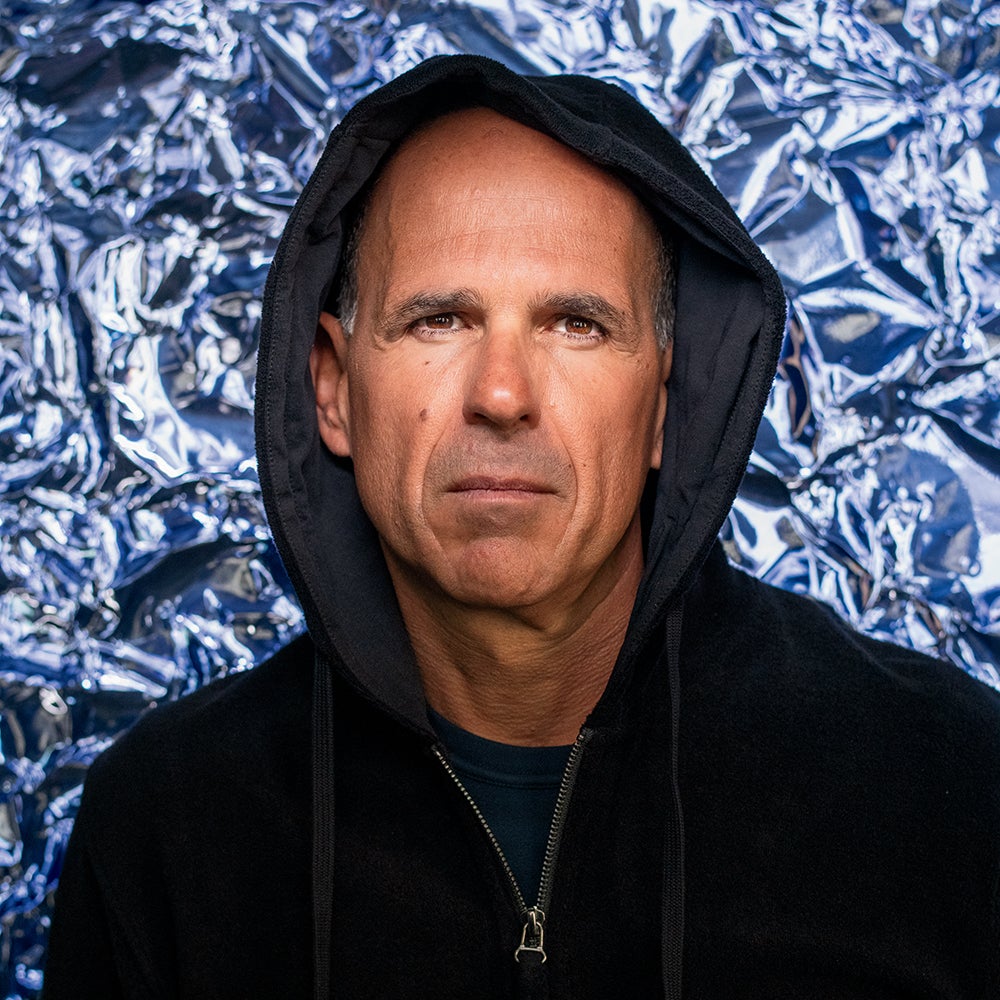
Image Credit: Bobby Fisher
This was 2022, and she was right — the show ran for only four episodes.
Lemonis is recalling this story as we sit in his living room, in an elegant townhouse in Manhattan. “It was a pretty harsh thing to say,” he says of his wife’s words. “But she was telling me: Don’t do something everyone else can do. Do what only you can do.”
When Lemonis said that, something hit me. “So,” I said, “what she was really telling you was: You have a function. Lean into that function.”
Leaders love having a mission. But they rarely think about having a function.
Consider the difference in those words. Mission is grand. Noble. Self-imposed. Great humans have missions, and those missions animate them. LeBron James said: “My whole mission in life is to speak for my people.” Maya Angelou wrote: “My mission in life is not merely to survive, but to thrive.” Mission, mission, mission.
Function feels different. It is flat and structural and unsexy. Just one part of a larger system. Machines, tools, teams—these things have functions. They are needed now but replaceable tomorrow. LeBron James and Maya Angelou do not speak of functions. No great human wakes up in the morning aspiring toward a function.
But what if it’s exactly what great leaders need?
And what if, like every great leader, Lemonis needed that reminder — of what makes him useful, and what does not, and how that might change.
Related: This One Leadership Move Will Transform Your Team’s Loyalty and Performance
To the general public, Lemonis is best known for being on TV: The Profit ran on CNBC for eight seasons, and he is now returning for a FOX show called The Fixer, launching on July 18. But his true bona fides occur off camera, where he leads two big companies: Camping World Holdings, which he cofounded and grew into a $6 billion-plus business and where he serves as CEO and chairman, and Beyond, the recently renamed fusion of buybuy BABY, Overstock.com, and Bed Bath & Beyond, where he became executive chairman last year.
As Lemonis will readily tell you: He has no children, his parents have died, and he spends his waking hours obsessing over operational excellence. Business is literally his life, and, he admits, he tends to forget that other people live differently. Which brings us back to the whole function thing. What is Marcus Lemonis’ function?
Lemonis thinks about it for a moment.
“I used to function as a therapist,” he says. As both a TV host and a business leader, he would ask thoughtful questions and deliver regular affirmations. He really likes people. He is warm and engaging. He wants people to feel good. He wants them to succeed. But in the past few years, his approach has changed. The way he treats people now surprises him. “I am very difficult to work with,” he admits.
Like how? Well, he says: “Have you ever been in a meeting that doesn’t end on the highest note, and then you leave the room, and you know everybody’s now talking about you? And they’re all like, ‘Fuck him’?”
Yes, I say. I do know that.
“That happens a lot more now,” he says.
Marcus turned 50 in late 2023 — and, like many people who hit that milestone, his own mortality started to come into view. He now feels time pass faster, ever faster.
“I know that my time in certain businesses isn’t forever,” he says. “So I’ve come to a conclusion. In the past, people would see me as a successful businessperson based on today’s results. But I don’t believe that to be as true as I used to. What I believe now is: If the business can be successful without me, that is the determiner of whether I was a good leader. It’s like, what happens when I’m gone? That is how I will be judged.”
This is now his function, he’s decided. Unlike before, it is not to profit, or to renovate, or to fix. It is to prepare. To prepare others to succeed without him.
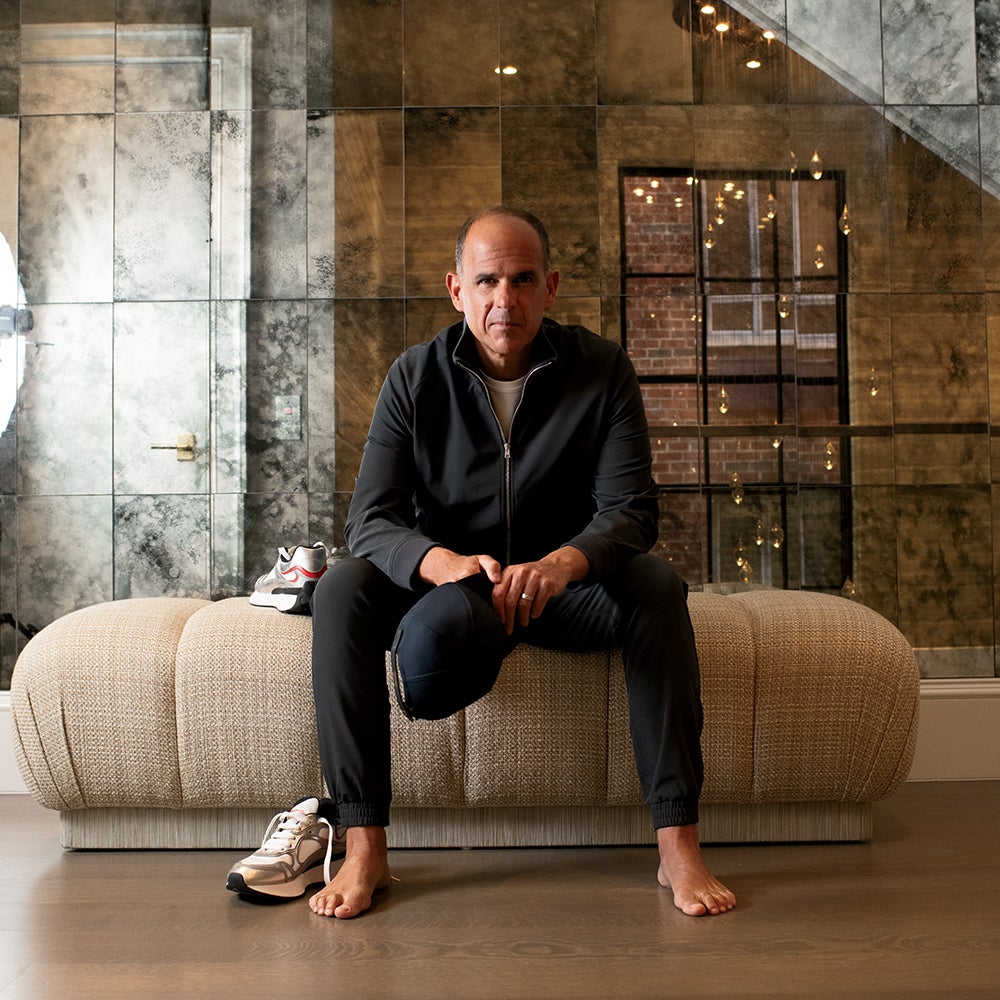
Image Credit: Bobby Fisher
I first met Lemonis in 2016, when I’d just started working at Entrepreneur. (I’m now the editor in chief.) We hosted an event at a fancy hotel in Scottsdale; I was the opener and Lemonis was the headliner. It was the first time I’d ever keynoted to a roomful of entrepreneurs, and I was deeply nervous. I dressed in a suit, even though I hate suits, to mask my feeling of being an imposter. I tried to talk myself up, to prove to the audience that I belonged.
Then I watched Lemonis casually stroll on stage after me, and do the exact opposite.
He began with a short version of his bio: He was born in Beirut during the run-up to the civil war, and was left at an orphanage at four days old. He was adopted by a couple in Miami, Florida. He was an only child who struggled to fit in — “an awkward child who turned into an awkward adult,” as he often says. Business became his refuge, the only thing that made sense to him. Then he basically told the audience: Look, I’m flawed, but I’m here to help. What’s on your mind?
People opened up. For the next hour or so, he basically ran a group therapy session.
I’ve followed Lemonis’ work ever since. I’ve heard him on many podcasts, seen him on TV, and noticed that he always does that same thing — starts with his biography. So now, nearly a decade later, as we sit together in his home, I ask him why. “The more I reveal about myself, the more you’ll reveal too,” he says. “I try to make it as extreme as I can, so that people almost think to themselves ‘Well, my life’s fucked up just like his.’ And then people are less judgy, and they’re more open to talk.”
This isn’t just a good presentation trick, he says. It’s also a good leadership strategy. To get the best out of people, you must connect as people. Great leadership, he believes, “starts with the acknowledgement of what you’re not good at.” A leader must recognize those things, and then surround themselves with people who are better. “Once you can accept your deficiencies,” he says, “it will allow you to home in on your strengths and double down on them.”
I ask Lemonis what he’s good and bad at. He gives me a list.
He is bad at details, at waiting for things to evolve, at giving people space, and at testing. His instincts are to go all-in on ideas, not sit around waiting for preliminary results. “So I need people around me who are strong enough to say, ‘That’s a terrible idea,’ or ‘We could try that, but not today,'” he says.
And what’s he good at? Driving hard. Ideas. Vision. Finding people, promoting them, and making them better.
When Lemonis talks to people about leadership, whether it’s from a stage or in a more intimate meeting, he often invites them to draw a mountain.
Try it for yourself. Grab a piece of paper and draw a mountain. Doesn’t matter what it looks like — it might be a round hill, or jagged with peaks and valleys, or whatever. Now here’s the point: “Draw yourself where you see yourself on the mountain,” Lemonis says.
Related: How Mastering Your Nervous System Boosts Leadership Presence and Performance
In most cases, Lemonis says, people draw themselves in the middle or at the top. He asks them why. If they’re in the middle, they’ll say: I’m not where I want to be. If they’re at the top, they’ll say: I’ve achieved everything I want.
To which he then replies: “What if you just thought about yourself at the bottom of the mountain? And what if you thought that your role at your company, in your business, in your family, or in your community, was to help everybody else get to the top? And that your job is to ensure that everything down at the base is safe, and that when shit rolls downhill, it rolls on you? And that when the flag gets posted at the top, you see other people do it? You don’t need to be at the top of the mountain anymore. And maybe the best leaders are the ones that want to get everybody else to the top of the mountain.”
This is not how Lemonis always thought. It’s not how most people think. He became the CEO of his first public company at age 25, and thought he needed to stay at the peak, where leaders belonged. “That was all wrong,” he now says. “What matters is how everybody else gets there. Does the company get there? Do the employees get there?”
Here’s another metaphor he likes: the army. If you’re going into battle, where is the leader? Many leaders think they should be at the front, leading the charge. But you know what? “You could die first, and then everybody’s screwed,” Lemonis says. A great leader is actually behind the troops — keeping them safe, observing their speed, making the adjustments.
“I’ve convinced myself that my role in life is to get the best version of everybody out of themselves,” he says. “And if I don’t get to the heart of the problem fast, the chances of me being able to extract the best version of them is limited.”
And that has created a conflict. Because sometimes, getting to the heart of a problem means hurting some feelings. Lemonis doesn’t want to be a jerk. But increasingly, he’s willing to.
Related: What Makes a Good Leader? Here’s What I’ve Learned After 20-Plus Years as a CEO.
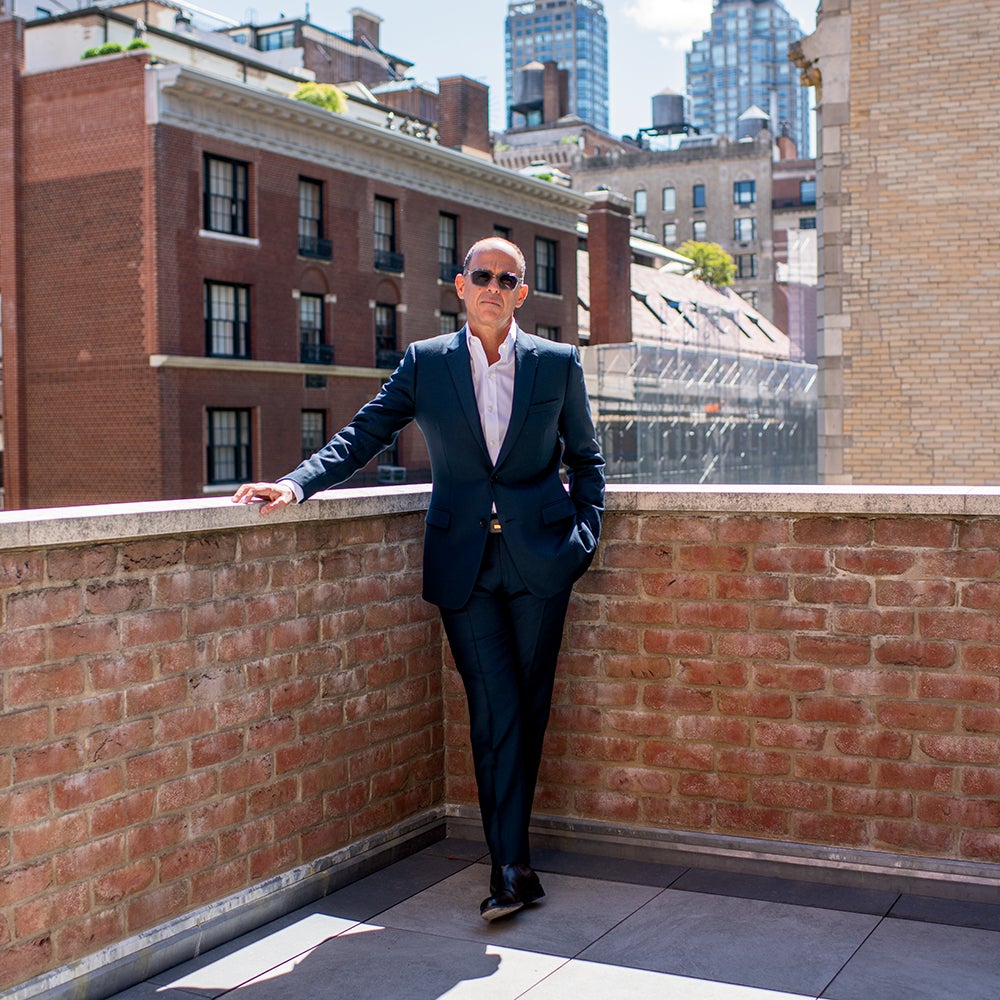
Image Credit: Bobby Fisher
For a man as busy and successful as Lemonis, he has surprisingly few barriers around him. He has no big publicity team. No entourage. His phone buzzes constantly, because everyone seems to have his number. (He gave it to me, too.) This is his way. He is disarming. At some point, he walks us into his kitchen, opens a cabinet, and there is a world-class collection of snacks in there. All neatly organized in glass jars. Have whatever, he tells me. He starts eating gummy worms.
“I love people. I love learning from people,” he tells me. And this is why, as he turned 50, he was surprised at how differently he interacts with people. He now keeps conversations shorter. He is more direct. He has less tolerance for slowness or bad ideas or people’s feelings.
“It’s the balance between light and dark,” he explains.
The what?
“The proper balancing of light and dark,” he says, “is something that I’ve learned over the years — where there’s a necessity to tell people how shit really is, but to also give them credit for the stuff that’s really right.” If he’s speaking to a direct report, for example, he might need to explain how they failed at something. In the past, he’d also spend a lot of time complimenting them, or hearing them out, or asking gentle and thoughtful questions.
But since turning 50, his balance has been shifting: Less light, more dark. “ I spent too much time in the past fluffing people up, and in some cases embellishing, before I got to the point,” he says. “But I noticed that, in the last 12 months, my patience for whiners versus winners has elevated to a new level — to a level that I think I need to probably temper a little bit. I get to the point quicker, and that is a lot for people.”
For example, let’s say he’s in a meeting at Beyond. Something isn’t working. Someone starts explaining why they’re doing it this way, or how it used to be done, and Lemonis will stop them. If it’s not working today, then what happened yesterday is irrelevant to him. He wants to know what drives results now. No time for light. Only darkness.
He grapples with how contradictory this feels. He’s always pushed people, yes, but with love and care. He is a people person! But mortality is inarguable. “ I started to recognize — and this is gonna sound crazy — that my time on earth is limited,” he says. “And my ability to influence the outcome is limited, and my time with them, because I’m busy, is limited, and I just need to get to the fucking point.”
Related: 4 Leadership Lessons I Learned While Disrupting an Industry
Even if it makes him a jerk. Even if someone dislikes him for it. Even if they never talk to him again. “Because I don’t think people will ever push themselves as hard as I’ll push them,” he says. “I’ve accepted the fact that I may never have an ongoing relationship with them. But when they achieve what I knew they could, that they didn’t think they could, will they look back and have a morsel that’s like: ‘That guy’s a giant asshole, but…’
“‘I never want to see his face again, but…’
“I am here for the but,” he concludes.
Remember earlier, when he said he’s walking out of more meetings knowing that everyone in the room is pissed at him? That they’re all basically thinking, Fuck Marcus? Truth be told, he’s enjoying that.
“Like in any good comic book, they
all band together against evil. I am the common enemy,” he says. “So I can help my team band together and build a fortress around themselves, and learn how to stick together, and learn how to be better together and make the team. They don’t realize that there’s a strategy here.”
I ask Lemonis: If this is now part of his function, does he view it as the sacrifice of leadership?
And here’s why I ask: Leaders often frame leadership through the lens of sacrifice.
I’m reminded of a conversation I had with Whole Foods cofounder John Mackey, who was CEO for 44 years. He said he attributes his longevity to one primary thing: He kept asking himself, What does the company most need me to do now? This meant constantly reinventing himself, taking on roles he did not love, for the betterment of the company. I heard a similar thing from Sean Tresvant, who became CEO of Taco Bell. His background is in marketing — so when he became CEO, he said, “Much to my chagrin, I wasn’t in charge of marketing anymore, and I had to learn that. I had to appreciate that.” And he had to let it go.
In these views, leadership is about doing what’s needed of you — even if it runs counter to what’s comfortable for you. It’s also the central tension of Batman, Spider-Man, and basically every hero story. And isn’t that sacrifice?
“I wouldn’t use that word,” Lemonis says. “I don’t see myself ever sacrificing. I see myself looking for fulfillment.”
Sacrifices are for people who want one thing, but who must settle for another. Fulfillment is for people who identify their function, and who then give everything to it.
Related: This One Leadership Move Will Transform Your Team’s Loyalty and Performance
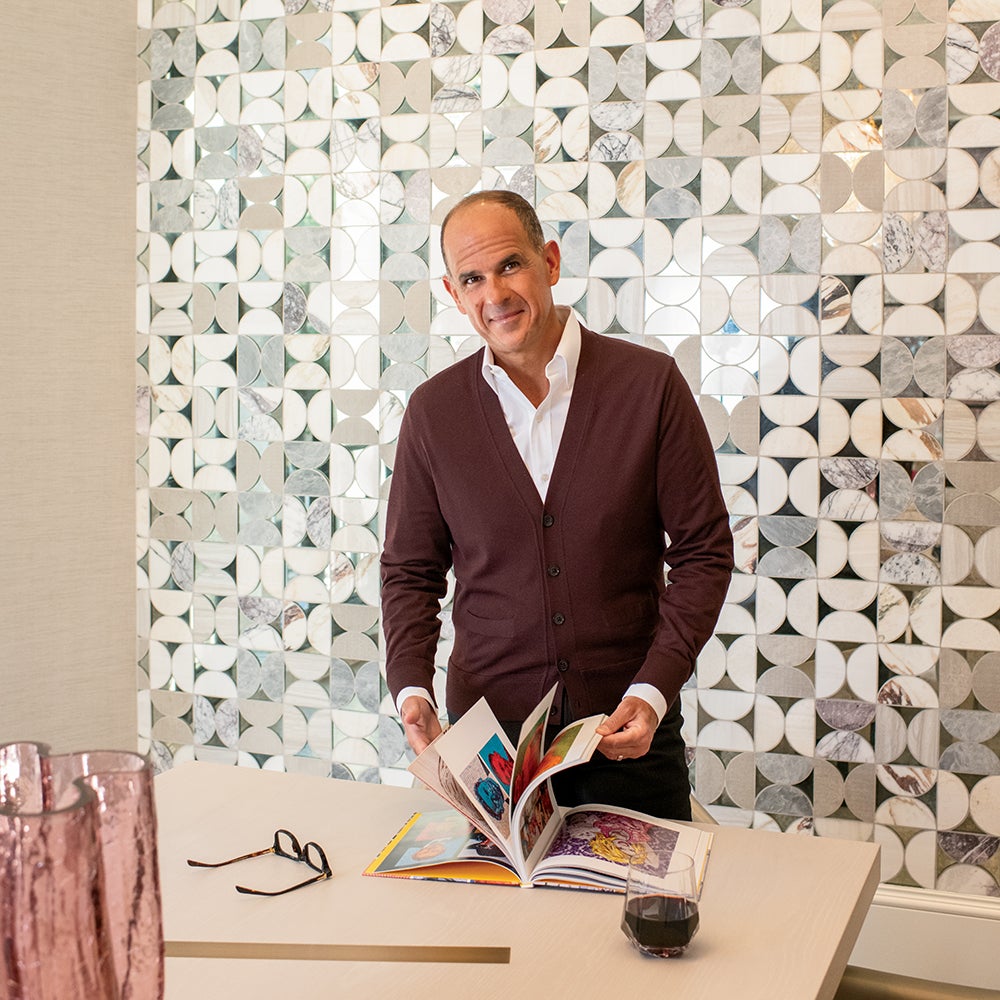
Image Credit: Bobby Fisher
Lemonis has to go. He’s due downtown at a TV studio, where he’s filming some final shots for his new FOX show. So we leave his townhouse and hop into an Uber, where he catches up on some work.
He calls a guy at Beyond, and starts talking about their upcoming Memorial Day marketing strategies. Lemonis gets granular. He’s talking about what products to feature. Suggesting how to style the “O” in “Memorial.” Tweaking the language they use to promote watches. “I could help you guys with this if you’ll just actually set up the time and they’ll just execute,” he says. “Like, every idea I have is not gonna be a good one, but most of them are gonna work.”
I can hear the guy on the other line, who seems to be furiously taking notes. Lemonis puts him on mute for a moment, then turns to me.
“So this is a young guy that nobody wanted to push,” he says. “We fight all the time because I push him. Now he’s exhausted by me.”
Lemonis says this like it’s a good thing. Which, by his logic, it is: His function is to push. To be pushed is to be exhausted. To be exhausted is to be on the path to excellence. That path is good for this young guy, and good for the company, and therefore good for Lemonis too, because it means that one day this guy (and this company) won’t need Lemonis. Which is good because, one day, Lemonis will be gone.
But for now, at least, we are all here — him, and me, and you. We go up a mountain, and we come back down. We lead an army from the front, then we revert to the back. We spend a lifetime searching for where we belong, and how we are most useful, and why we will matter to others, only to realize that the answer was always ours to define.
Related: Why Letting Go of Full Control of My Business Was the Hardest — and Smartest — Move I Ever Made


